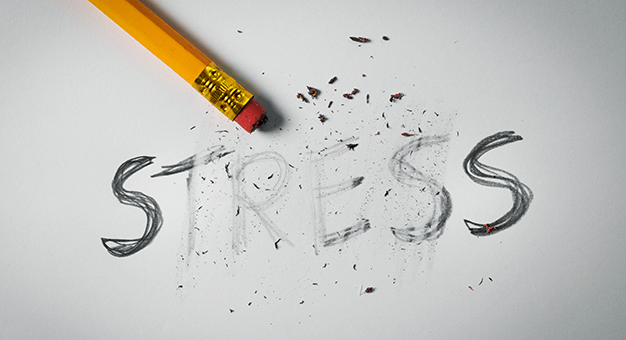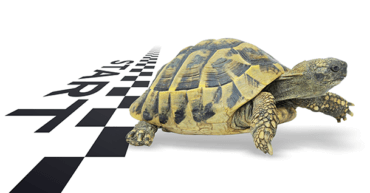September 21, 2021
Insider Tips for Stress Management

By Julie Gregory, Chief Health Liaison for Apollo Health
As we approach the autumnal equinox, the days become shorter; the nights become longer, the temperatures become colder, causing the summer foliage to transform into a brilliant blaze of color before eventually falling from the trees. This signals a dormant period in which the trees conserve their energy, live off of stored food, and prepare for the great bud burst in the spring. Taking a cue from nature, we can use this period to turn inward and strengthen ourselves.
One of the best ways we can become stronger and create true resiliency is to focus on cultivating new habits to manage stress. So while we regularly discuss stress management practices — such as mindfulness, meditation, Neural Agility, the Dynamic Neural Retraining System, HeartMath, qigong, tai chi, and yoga — all of which can be enormously helpful, I’m going to focus on frontline stress management tips that can be both extraordinarily liberating and empowering. (Apollo Health subscribers can see STRESS: Just Breath for details.)
You may need to make a shift in your value system before you’re fully able to incorporate some of these tips into your daily routine. That was true for me. Like many women, I tended to focus my energy on taking care of others and wasn’t always comfortable investing the same amount of energy in myself. I used to put the needs of family, my son’s school, our church, community, etc., ahead of myself. I always thought that there would be time to focus on myself “later.” It wasn’t until I learned that I was an ApoE4 homozygote that I realized later may not come if I didn’t begin caring for myself now.
Many of you are coming to this program for prevention and are perfectly poised to adopt these strategies to optimally protect your brains from the potentially devastating impact of chronic, acute stress. Even those who are already showing symptoms of cognitive decline can benefit from these tips. Like me, you may need them more urgently. The great news is that the payoff is huge. Moving through your day with a sense of peace and control is powerfully rewarding.
Stress Management Tips
• Give yourself permission for self-care. Allow time in your schedule to care for yourself. You are worthy. The pathology that leads to cognitive decline takes a decade or more. Even if you already have concerns about your cognition, by actively managing stress today, you can change the way you respond to everyday pressures creating a resiliency that confers long-term neuroprotection.
• Don’t overschedule. You needn’t say yes to every social engagement, work opportunity, or family obligation. Know your limits and set realistic boundaries. Decline opportunities that don’t align with your priorities and goals. This is a part of giving yourself permission for self-care.
• Use lists. We all have lots to get done every day. Start your day by writing down realistic goals and cross them out as you achieve them. This is by far my favorite stress management tip. This simple strategy can provide a sense of accomplishment, help you stay focused, and achieve more. When you’re feeling overwhelmed, trying to remember and juggle everything that you’re supposed to get done in your brain, it’s easy to feel a sense of stress and chaos. Once it’s written down, you can prioritize your tasks for the day, and begin accomplishing.
• Unplug. Many of us are old enough to remember when we communicated through occasional phone calls on our landlines or through actual letters in the mail. Think of the enormous freedom that provided! We ran errands, performed our chores, and got through our workdays relatively uninterrupted. Now, with the explosion in technology, we’re expected to be connected all of the time through cell phones, text messages, voicemail, fax machines, email, Facebook, Twitter, and Instagram. Constantly being “on-call” and responding to everyone’s demands drain you of energy, causes stress, anxiety, and even depression. Most importantly, it doesn’t allow you to focus on the task at hand. Limit your exposure to technology. The world will carry on without you. The psychological benefit goes way beyond the reduction in WIFI and EMF.
• Forget multitasking. The ability to perform multiple tasks at one time is an overrated and newly prized skill, not aligned with our still primitive genomes. Science shows that our attention network works best when we focus on one cognitive skill at a time. Constantly responding to multiple stimuli over time is draining and actually has a negative effect on our cognition and can lead to feelings of stress. Focusing on one thing at a time allows you to be present and mindful. It can also provide the opportunity for daydreaming, creativity, and problem-solving. Give yourself permission to do one thing at a time and luxuriate in focusing on that single task.
• Exercise. In addition to all of the benefits we’ve already outlined, regular exercise (especially outdoors) is an excellent stress reducer. When you feel strong emotions, an invigorating walk can often provide a sense of clarity and calm. (Apollo Health subscribers can see EXERCISE: “Just Do It.”)
• Get adequate sleep. Have you ever noticed how much easier it is to handle all of life’s little stressors when you’ve had a good night’s sleep? Science clearly demonstrates that adequate sleep improves our mood and ability to respond to stress. (Apollo Health subscribers can read SLEEP: The Antidote for tips on how to optimize the quality of your sleep.)
Finally, if situational or chronic stress affects your ability to enjoy previously pleasurable activities, eat well, get quality sleep, or simply feel happy, it’s time to reach out to a helping professional. Reaching out for help is not a sign of weakness but rather a sign of strength. A professional can help to rule out other physical causes for your feeling of stress and work with you to identify coping techniques that work for you.
Remember, these stress management tips aren’t a replacement for building stress management practices like mindfulness and meditation into your routine. They are, instead, insider tips on how to maintain that sense of calm throughout the day. Those who aren’t Apollo Health subscribers can learn more in “The End of Alzheimer’s Program.”




